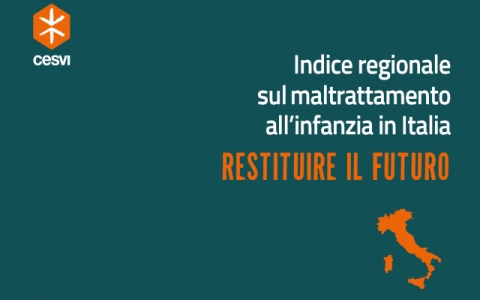Cesvi: Regional index on child maltreatment in Italy 2020

Cesvi, an Italian NGO, has published the third edition of the regional index on child maltreatment in Italy, entitled “Giving back the future (Restituire il Futuro)”. The current publication analyses the phenomenon of child maltreatment in various Italian regions, through the investigation of the risk factors and the ability of local administrations to prevent and combat the phenomenon through the services offered.
The index presents a ranking based on 64 indicators classified with respect to six different capacities that represent the backbone of the Index: the ability to care for oneself and others, to live a healthy life, to live a safe life, to acquire knowledge, to work, to access resources and services. For the first time, the Index includes a chapter dedicated to the analysis of the COVID-19 period, highlighting how the emergency and the lockdown have influenced the risk factors for child maltreatment.
The publication of Cesvi is divided into 5 major sections:
- Child maltreatment: the general framework
- The regional index on child maltreatment in Italy
- Resilience as a strategy to prevent, treat and combat child maltreatment
- The well-being of children and the risk of maltreatment during the COVID-19 crisis
- Reflections and proposals for prevention and contrast policies
According to the publication, the risk of child maltreatment in Italy still remains high, and it is amplified by the social and economic consequences of the Coronavirus emergency. It is estimated that 47.7 out of 1,000 minors are followed by social services. Of these, nearly 100,000 are victims of maltreatment.
Cesvi is a secular and independent Italian humanitarian organization, born in Bergamo in 1985. Present in 22 countries, it operates all over the world to transform humanitarian intervention into an opportunity to build long-term projects that promote self-development and the leading role of beneficiaries.

